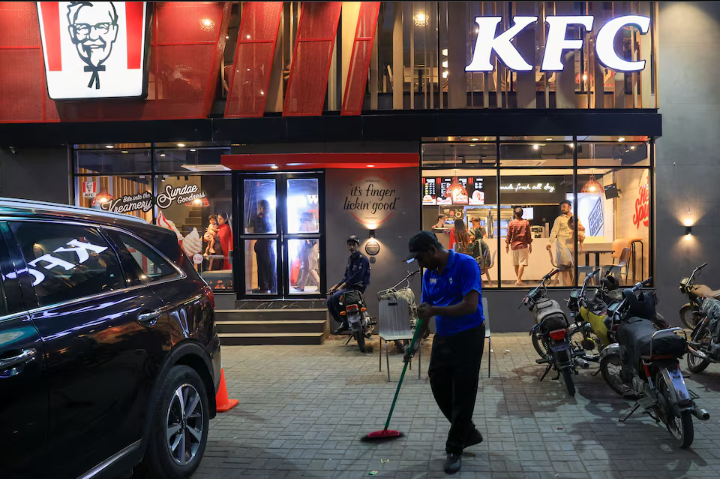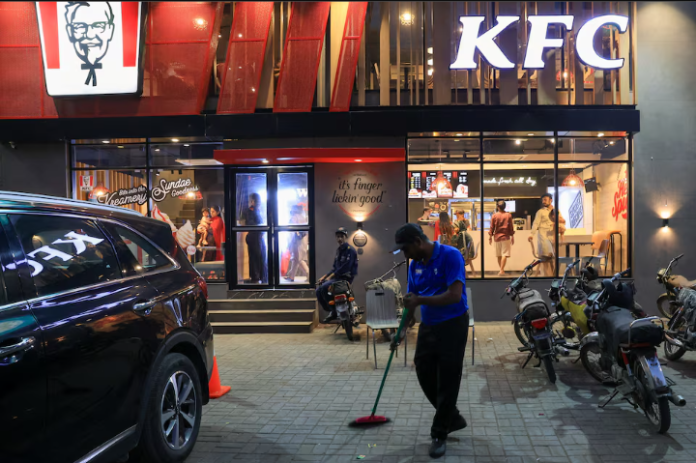In the wake of growing tensions surrounding the ongoing Gaza conflict, more than 170 individuals have been arrested across Pakistan for violent attacks on branches of U.S.-based fast-food chain KFC. These incidents are part of a larger wave of anti-Israel and anti-American protests that have intensified in several Pakistani cities.
Authorities confirmed that at least 11 KFC outlets in major cities—Karachi, Lahore, and Islamabad—were targeted by angry mobs. Protesters armed with sticks stormed the fast-food restaurants, vandalizing property and inciting chaos. The backlash stems from increasing public anger over U.S. support for Israel in its military campaign in Gaza, which has claimed over 51,000 Palestinian lives according to local health authorities.
The most disturbing incident occurred in Lahore, where a KFC employee was fatally shot by unknown gunmen. Law enforcement has yet to determine whether the killing was politically motivated or unrelated to the protests. The investigation is ongoing.
In response to the escalating unrest, police have intensified security around KFC outlets, particularly in Lahore where 27 locations are now under heightened surveillance. According to Faisal Kamran, a senior police officer in the city, 11 suspects have been arrested so far, including a member of the Islamist political party Tehreek-e-Labbaik Pakistan (TLP). However, the party has denied any official involvement in organizing the demonstrations.
TLP spokesman Rehan Mohsin Khan clarified the party’s stance: “We have urged Muslims to boycott Israeli products, but we have not called for protests outside KFC. If anyone acted in our name, it was not sanctioned by our leadership.”

KFC, a subsidiary of Yum Brands, has often been viewed in Pakistan as a symbol of Western influence, and has previously been the target of anti-U.S. sentiment. While Yum Brands has not released an official comment, it’s reported that another of its brands, Pizza Hut, has also experienced a prolonged impact from boycotts in various Muslim-majority countries over the same conflict.
Consumer behavior in Pakistan is also shifting. Local brands are gaining ground, especially in the cola market, where U.S. giants like Coca-Cola and PepsiCo have seen their market shares drop slightly in recent years. Religious leaders in Pakistan have recently called on the public to boycott companies perceived to support Israel or the U.S. economy—but urged protesters to remain peaceful and avoid damaging property.
As the Gaza war continues to inflame passions globally, the backlash against Western brands in countries like Pakistan reflects a deeper frustration, particularly in nations with strong Islamic identities. With more protests anticipated, businesses operating in such volatile environments will need to brace for further disruptions.



